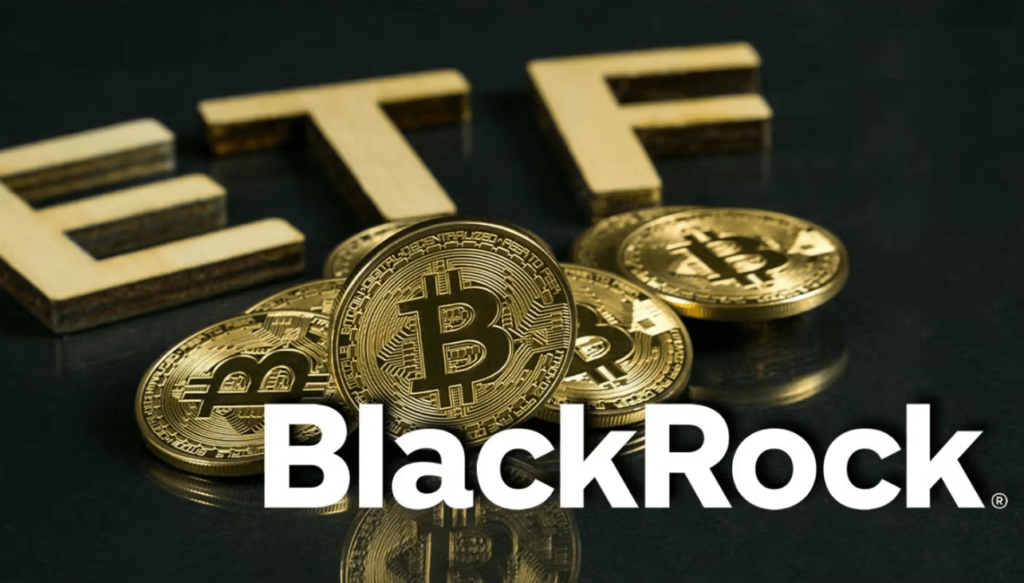BlackRock’s iShares Bitcoin Trust (IBIT) saw its worst-ever net outflow in a single day, with $332.6 million drained from the fund. This move has caused many to question the long-term viability of Bitcoin ETFs, especially IBIT, the market leader since its inception. As investors reevaluate their holdings, the Bitcoin ETF market—once considered a game-changer for institutional adoption—is now confronting more volatility.
Increase of Bitcoin Exchange-Traded Funds
Many people opt for exposure to Bitcoin without owning any cryptocurrency through Bitcoin exchange-traded funds (ETFs). These funds offer a simpler and more regulated approach to investing in Bitcoin by tracking its price. With a rapid ascent to over $54 billion in net assets since its introduction in early 2024, BlackRock’s IBIT has firmly established itself as a leading Bitcoin ETF. The recent record outflows show a change in investor opinion, which raises fundamental issues regarding the mechanisms driving these movements.
Shocking IBIT Cash Outflows
With a net outflow of $332.6 million, the biggest single-day withdrawal in IBIT history occurred just last Thursday. Late in December, the fund had a massive outflow of $188.7 million in a single day, followed by this noteworthy incident. BlackRock’s Bitcoin ETF, These large-scale withdrawals in quick succession show investors’ growing prudence.

Nearly five days later, the Bitcoin ETF market saw outflows of $464.8 million, with IBIT accounting for nearly 50% of that amount. That the fund is at the centre of the current market turbulence is a sign that investors are temporarily turning their backs on Bitcoin ETFs.
Why Are Investors Pulling Out?
- Profit-Taking: After Bitcoin’s impressive performance in 2024, where it reached an all-time high of $108,000 in December, many investors are likely securing profits, leading to increased redemptions from Bitcoin ETFs.
- Market Volatility: Bitcoin’s price fluctuations make it a high-risk asset. Sudden rallies and corrections have prompted investors to reallocate their portfolios and move funds to safer investments.
- Regulatory Uncertainty: Unclear government policies, taxation rules, and upcoming regulations on cryptocurrency investments have created uncertainty. Some institutional investors are reducing their Bitcoin ETF exposure as a precaution.
- Economic and Geopolitical Factors: Recent U.S. tariffs on China, Canada, and Mexico have introduced global economic uncertainty, affecting Bitcoin and other high-risk assets. Investors are cautious about how these developments may impact the broader financial markets.
Comparing Bitcoin ETFs
Other Bitcoin ETFs showed a range of returns, while IBIT had historic outflows. New investments totalling $48.3 million were received. The Bitwise Bitcoin ETF (BITB), with $36.2 million going to the Fidelity Wise. Origin Bitcoin Fund (FBTC) and $16.5 million to the ARK 21Shares Bitcoin ETF (ARKB).
These divergent trends indicate that some investors are getting out of particular exchange-traded funds (ETFs). While others are finding new ways to invest in Bitcoin. BlackRock’s Bitcoin ETF, It also shows that investors selectively alter their portfolios depending on various risk factors and that not all Bitcoin ETFs are going through the same amount of volatility.
What This Means for Investors
- Diversification Is Key: Relying on a single ETF, even as large as IBIT, can expose investors to heightened risks. Diversifying across multiple funds can help reduce exposure to market fluctuations.
- Due Diligence Matters: Investors must carefully assess different ETFs’ underlying assets, management strategies, and fee structures before making investment decisions.
- Risk Management Is Essential: Given Bitcoin’s volatility, investors should consider stop-loss orders, periodic rebalancing, and portfolio reviews to mitigate potential losses.
- Institutional Investors: Many institutions that previously embraced Bitcoin ETFs as a regulated alternative to direct cryptocurrency holdings are now reassessing their exposure due to increased uncertainty.
Summary
Cryptocurrency investments are dynamic and frequently unpredictable, as BlackRock’s record-breaking IBIT outflows show. Despite heavy withdrawals, the Bitcoin ETF market is still alive and thriving, with some funds even seeing fresh investment capital. This means that investors are still wary about Bitcoin ETFs but aren’t walking away just yet. In its place, they might put their money into something else or hold off on reinvesting until the market is more stable.
In the coming years, market forces, regulation changes, and institutional acceptance will determine the trajectory of Bitcoin exchange-traded funds (ETFs). The influx and outflow of assets into and out of exchange-traded funds (ETFs) will be impacted. By the price swings of Bitcoin as investors respond to evolving market conditions. The lack of regulatory clarity will greatly affect retail and institutional investors’ interest in Bitcoin ETFs.
[sp_easyaccordion id=”2479″]


